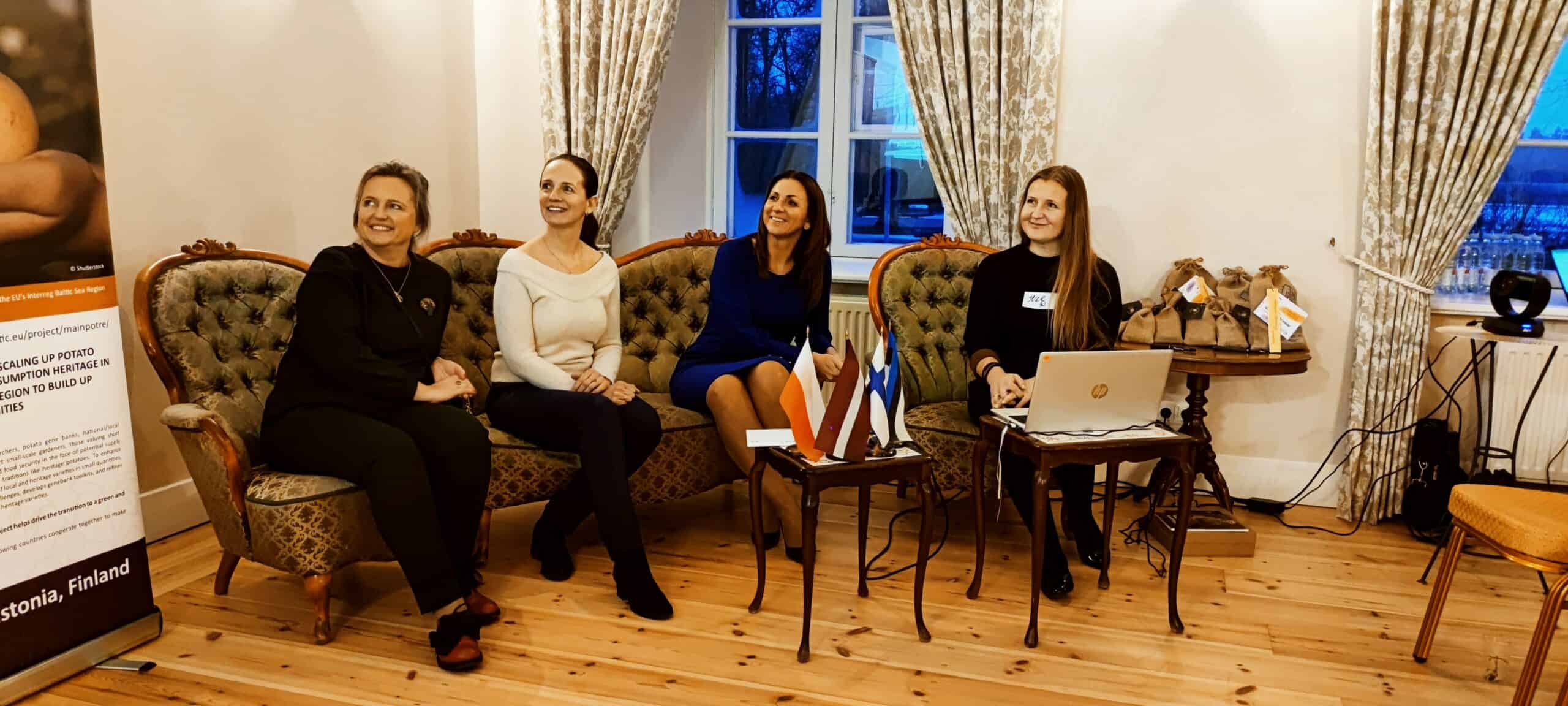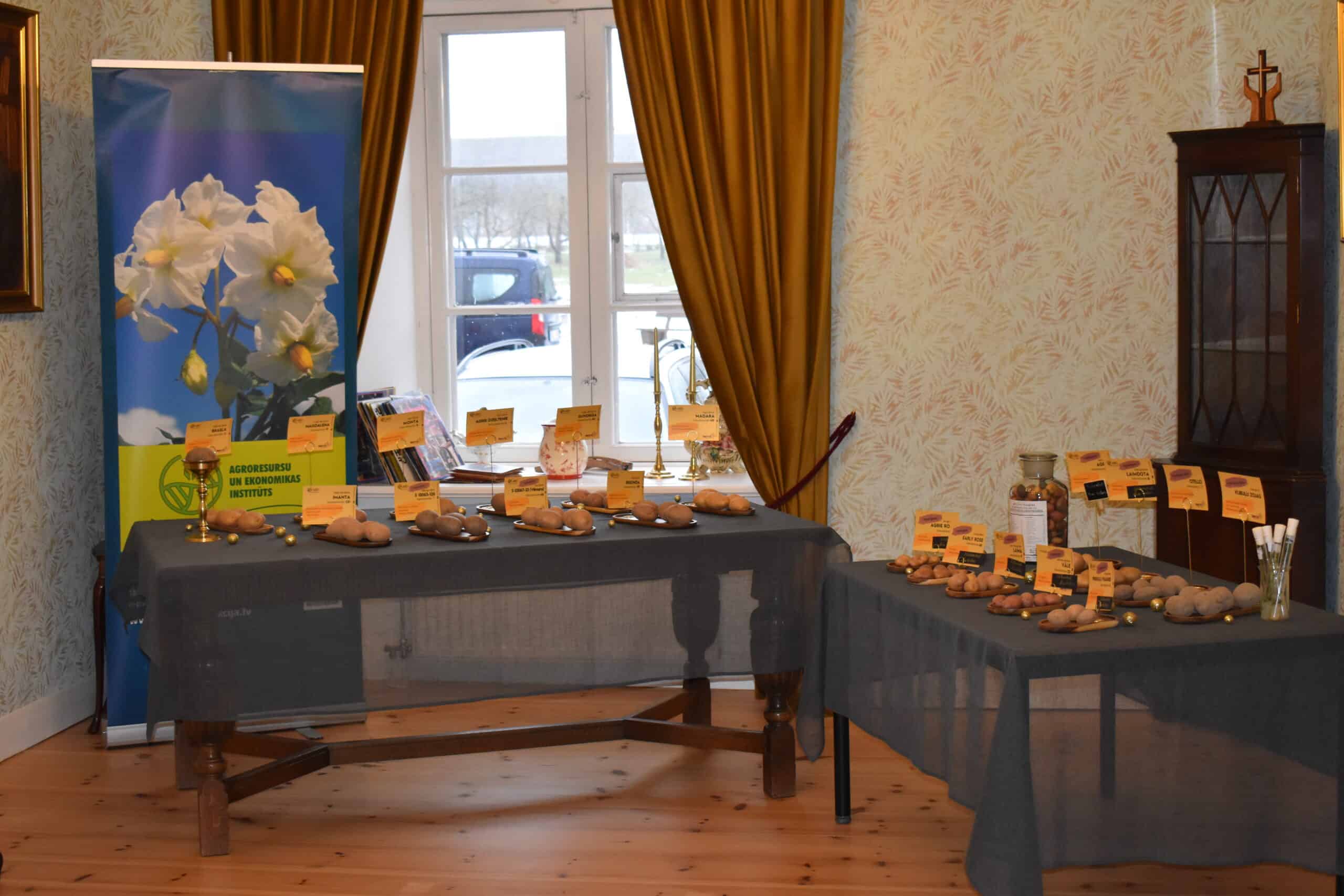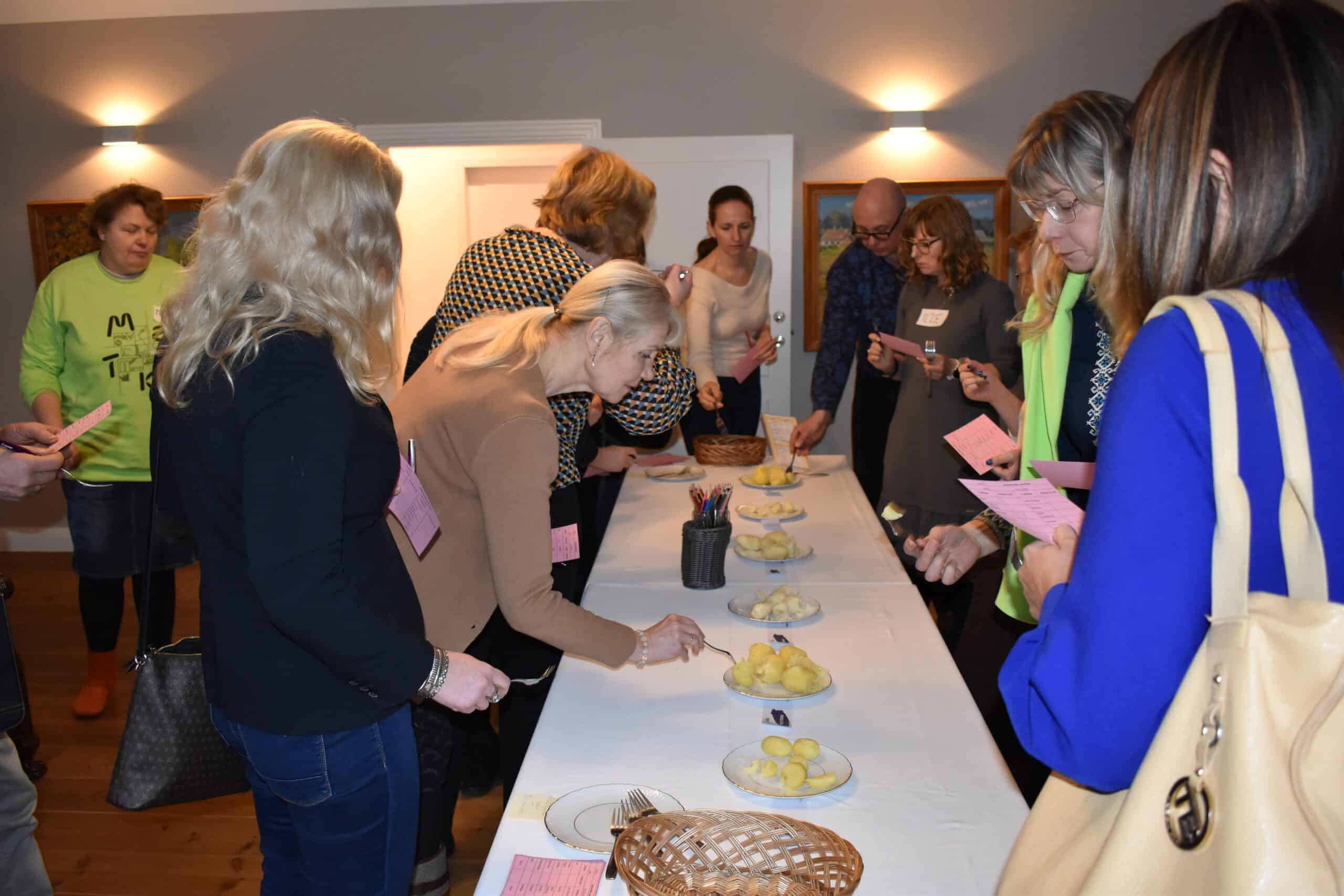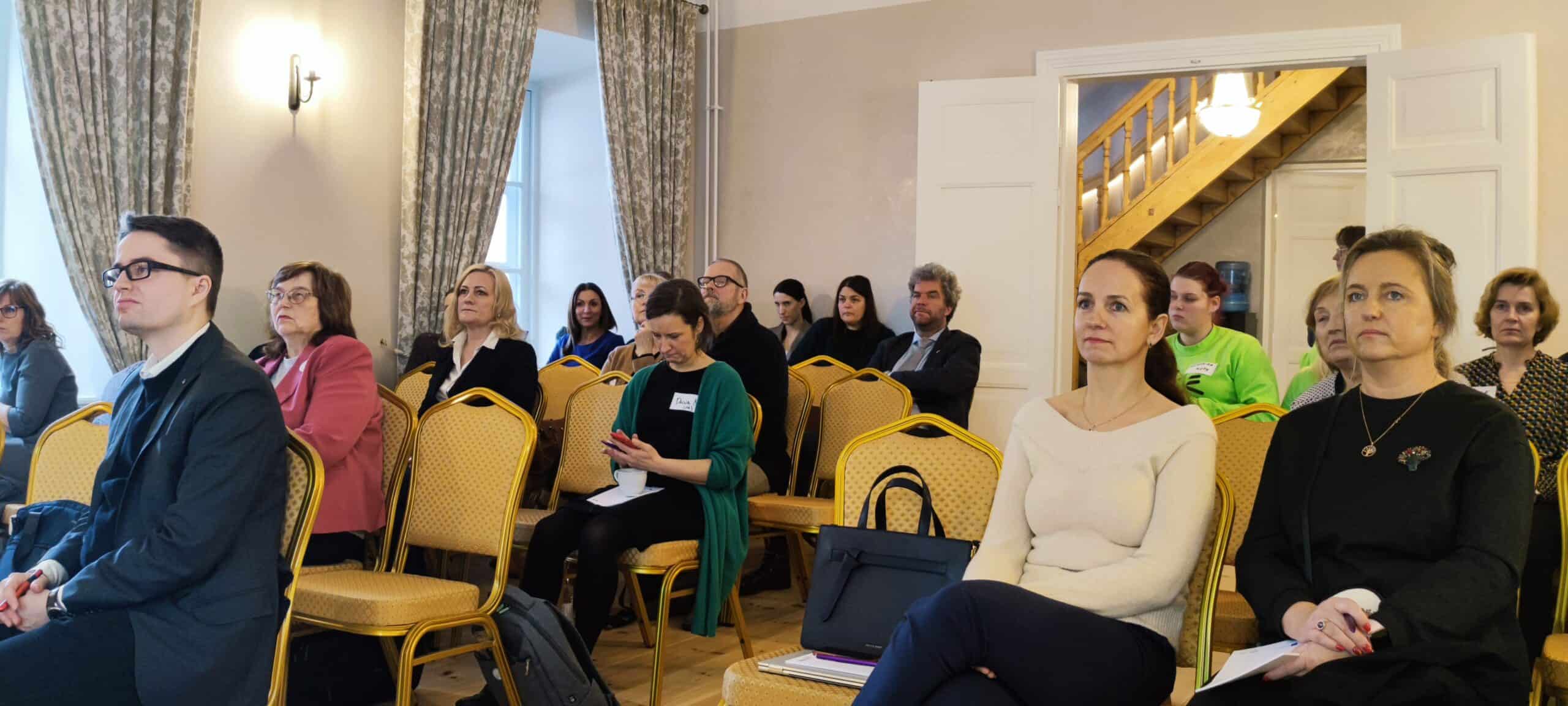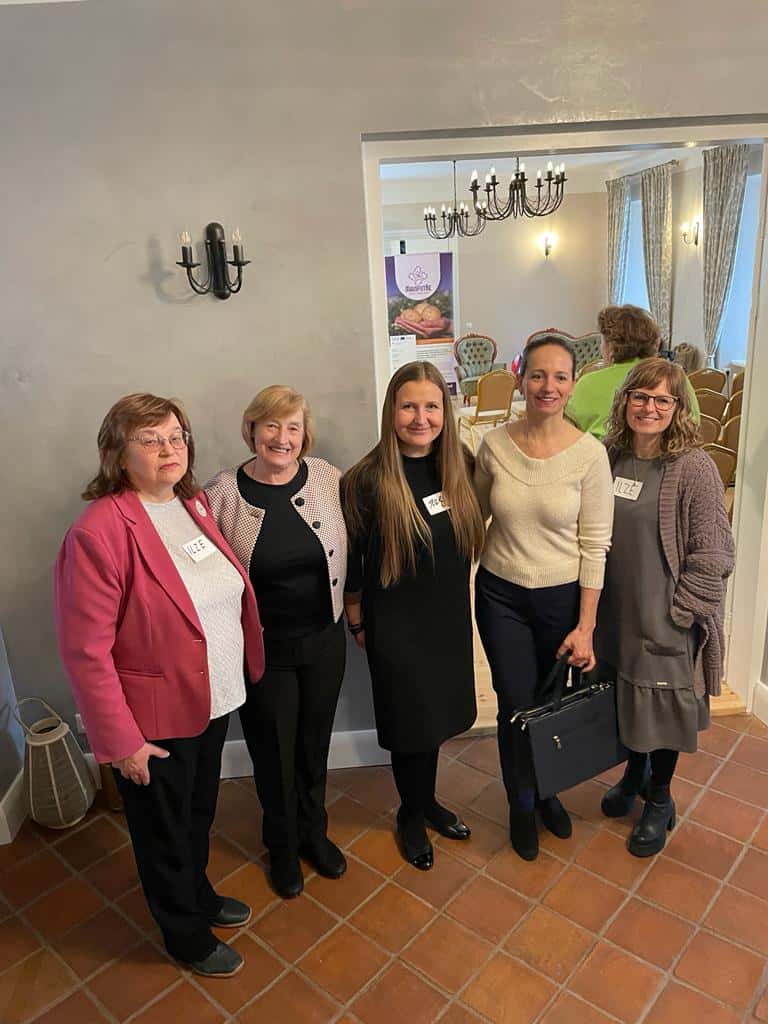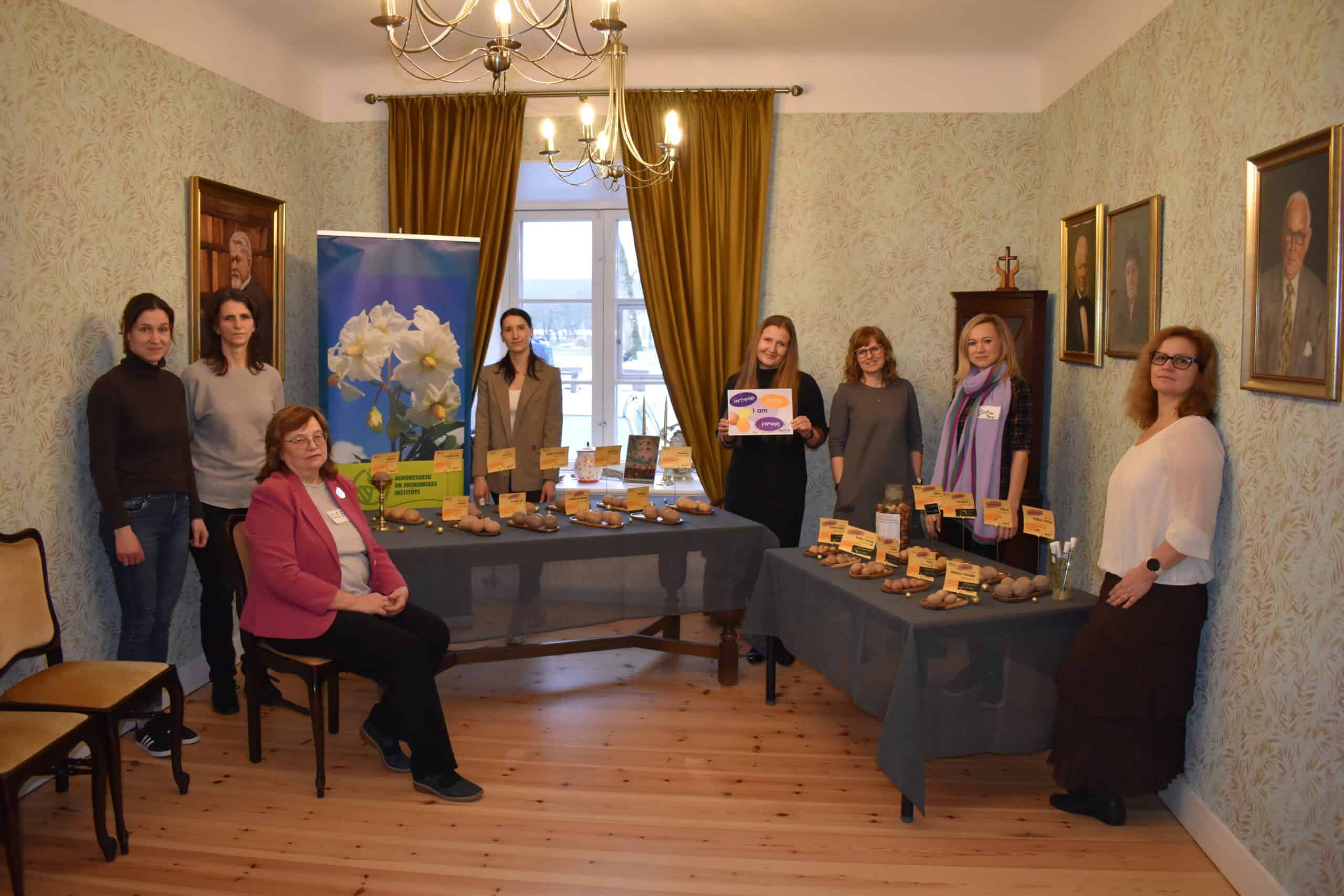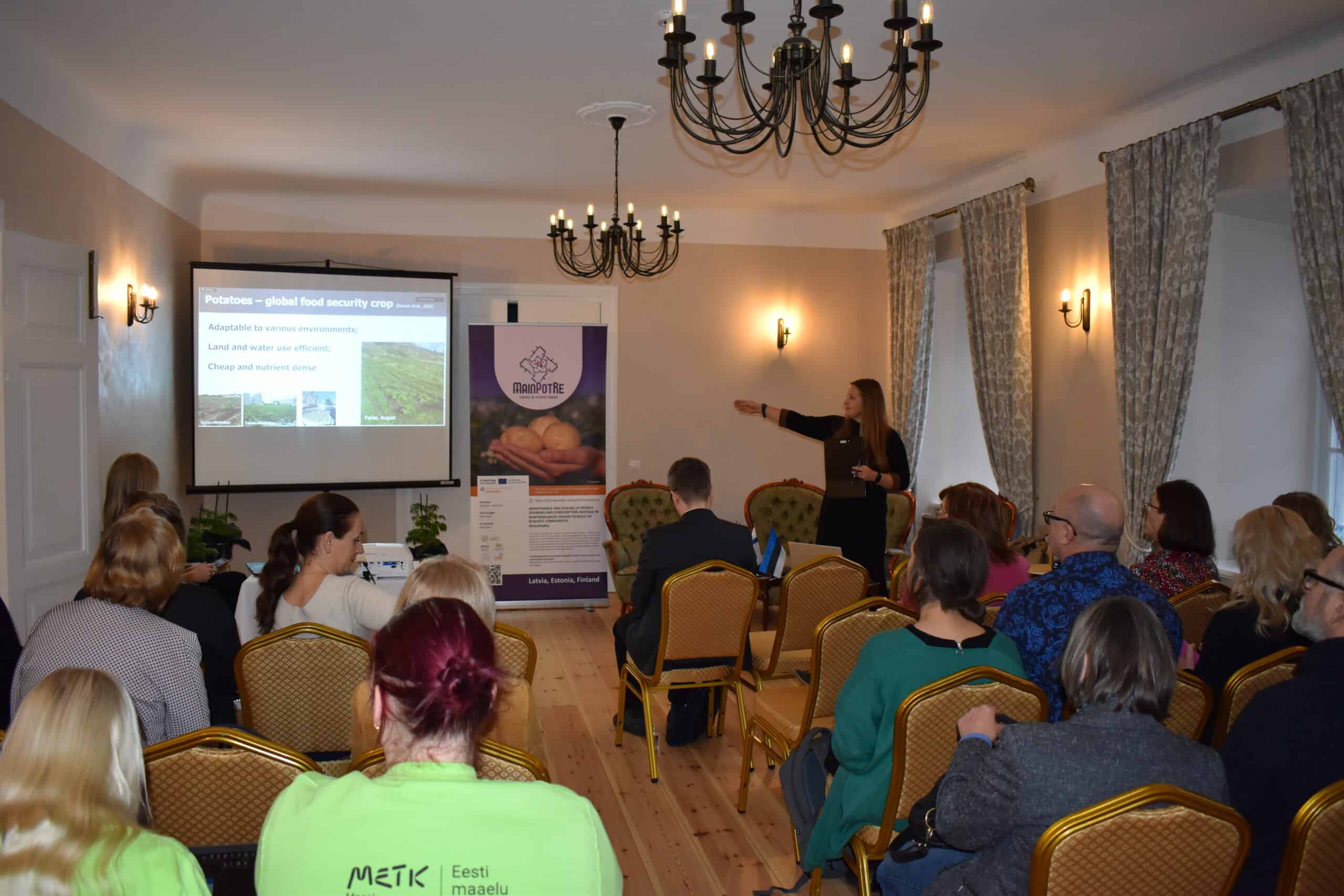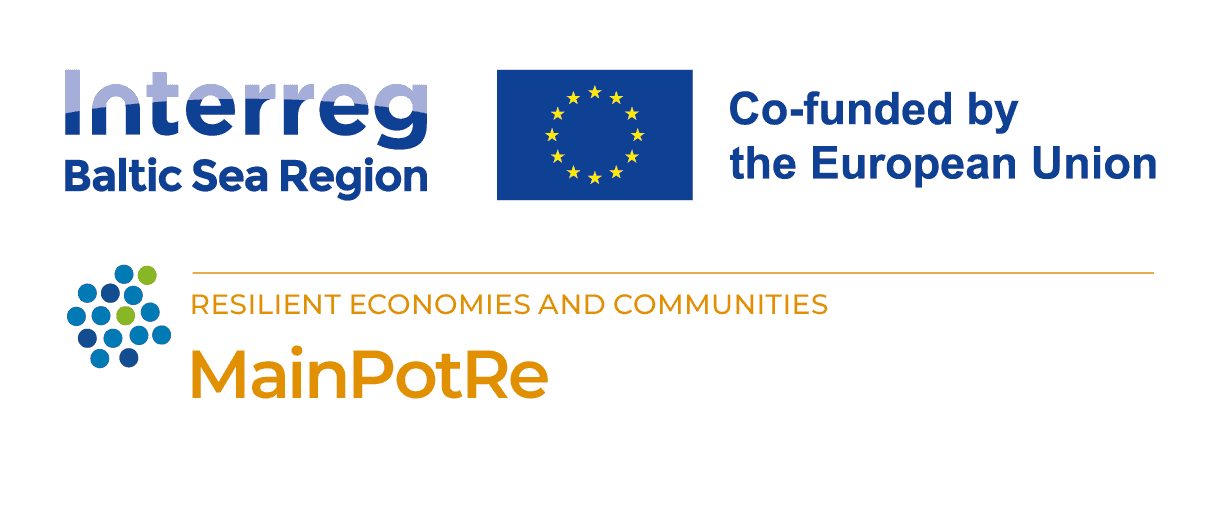
Seminar with target groups
05 February 2024
In the Liepa parish of the Priekuļi unit in the Cēsis district, the central topic of discussion for two days was potatoes – their place in national security and the importance and role of using local varieties in shortening supply chains, boosting the local economy, research, and plant breeding, as well as in building resilient and self-sufficient communities. On the second day of the seminar, representatives from local municipalities, Vidzeme Technical and Design Secondary School, Latvian Permaculture Association, Ministry of Agriculture and other organizations, including Enter Gauja, Slow Food Straupe, Cēsis District Rural Partnership and others, joined the project team. Some participants took advantage of the opportunity to attend lectures and discussions remotely.
The seminar was initiated by project leader Ilze Dimante, highlighting the importance of potatoes in national security, also agreed to it in his speech – Jaakko Koivusaari, the First Secretary of the Finnish Embassy in Latvia. Informative and exciting was the information prepared by the Permaculture Association members about heirloom crops, as well as the experiences shared about unconventional potato cultivation methods, such as growing them in hay.
Ilze Dimante emphasized the benefits of using certified seeds and the importance of plant health aspects in potato cultivation for self-consumption. She, along with colleagues from Estonia and Finland, Liisa Kübarsepp and Veli-Matti Rokka, discussed the potato collections maintained in local gene banks. Several EU-provided product quality schemes, explained by Piritta Sokura from Ruokavirasto in Finland, include geographical indications. Ms. Sokura stressed that obtaining the respective logo allows the product to enter the exclusive European product club, which currently has very few products from our countries. Of course, as in the seminar revolving around potatoes, a discussion arose – could potatoes from Priekuļi (and Jõgeva) receive geographical indications? Yes, it is possible, and such examples can be found in Europe, including the registered potato variety Lapin Puikula in Finland, of which the Finns are very proud.
The first part of the seminar concluded with a potato variety tasting prepared with the help of students from Vidzeme Technical and Design Secondary School. Seminar attendees sampled and evaluated both modern varieties created in Priekuļi and those for which seed cultivation is no longer performed, as well as folk varieties stored in genetic resource collections, the origins of which are unknown.
The second part of the seminar was dedicated to the role of potatoes in culinary heritage, with Ülle Jukk from Jõgeva Cooperation Chamber sharing the Estonian example. AREI potato breeder Ilze Skrabule provided information about the tasted and evaluated varieties, as well as shared the beginnings of potato experiments in Latvia (already in the mid-19th century in Priekuļi) and the development of scientifically based potato breeding, which, like in Estonia, is still state-supported and active.
The last presentation of the seminar focused on experience stories from several Finnish municipalities, presented by LUKE researcher Maarit Heinonen. In several municipalities, residents cherish and cultivate their own old potato varieties. It turns out that potatoes can also be a part of local identity – appearing in the coat of arms, as a central figure in celebrations, and even as a business gift for municipal guests.
While many municipalities in Latvia are now desperately seeking their identity, we asked representatives of our district, as well as representatives of organizations involved in tourism and cultural heritage preservation – can potatoes become the identity and magnet for tourists in our region? Both those addressed and other attendees agreed that there is potential for development here, but it requires enthusiasts, entrepreneurs, and strong communities.






